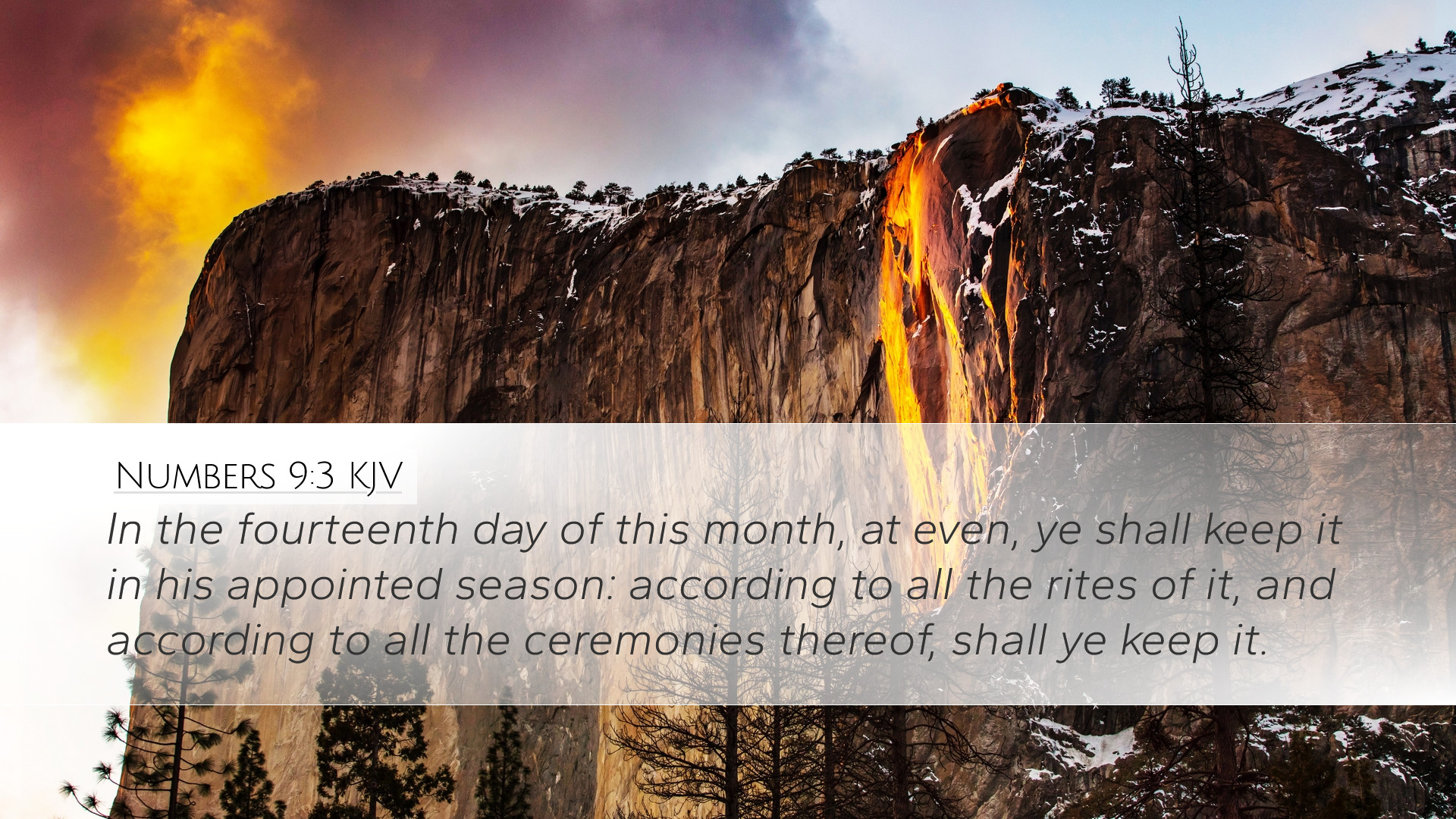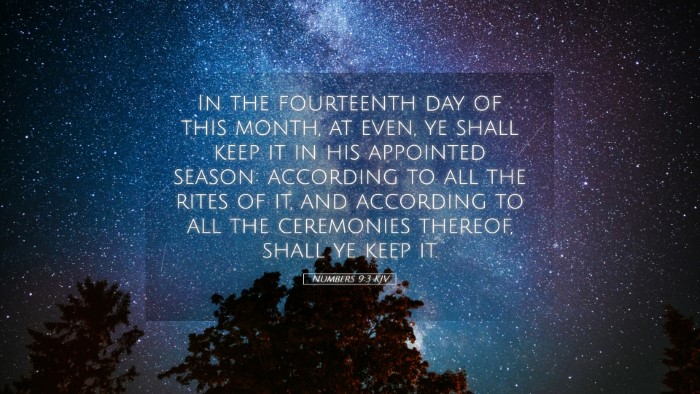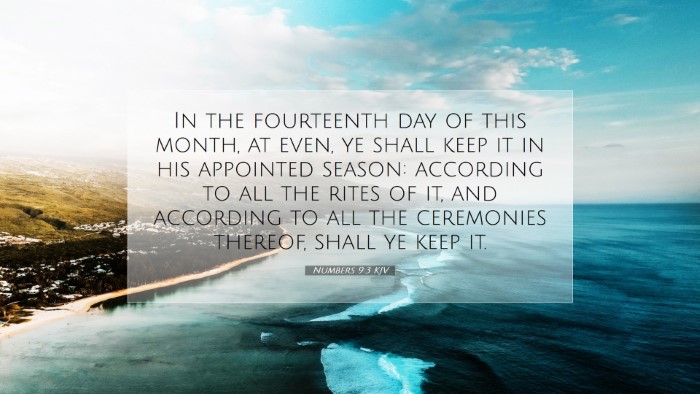Commentary on Numbers 9:3
Verse Context: Numbers 9:3 states, "On the fourteenth day of this month, between the evenings, you shall keep it at its appointed time; according to all its rites and ceremonies you shall keep it." This verse refers to the observance of the Passover, a significant event that commemorates the deliverance of the Israelites from Egypt.
Overview of Verse
The directive given in this verse emphasizes the importance of observing God's commandments in a meticulous manner. The mention of "between the evenings" indicates a specific time for sacrifice, reflective of structure in worship and obedience to divine instruction.
Insights from Public Domain Commentaries
-
Matthew Henry's Commentary
Henry notes that this command emphasizes the necessity of a distinct time for worship and celebration. The phrase "between the evenings" is interpreted as the time between the declining of the sun and the night, signifying a transitional moment that both recalls the past and anticipates the future. He articulates that this timing underscores the seriousness of the commemoration, linking it to God's faithfulness and promises.
Additionally, Henry points out that the Passover is a remembrance of great deliverance, and he urges readers to view it as a foretaste of greater redemption through Christ.
-
Albert Barnes' Notes
Barnes emphasizes the importance of the Passover as a national and spiritual identity marker for Israel. He expounds that the requirement to conduct the observance "at its appointed time" is a clear instruction for maintaining the sacred traditions that bind the community together. Furthermore, this verse illustrates the obedience required by the people of God in adhering to His timings, showing their devotion and reverence.
Moreover, Barnes reflects on the procedural details outlined in this command, noting how they serve to cultivate discipline within the covenant community.
-
Adam Clarke's Commentary
Clarke elaborates on the implications of this ordinance. He interprets "keep it at its appointed time" as indicative of God's sovereign design for sacred occasions, which should not be altered or neglected. He deduces that such observances serve to strengthen familial and communal ties, as families gathered to partake in the Passover together.
He also highlights the prophetic significance of the Passover lamb, drawing parallels to Christ, the ultimate sacrificial Lamb, thereby linking Old Testament practice with New Testament realization.
Theological Implications
This verse serves as a powerful reminder of the continuity of God's redemptive history. The observance of the Passover transcends mere ritual; it embodies a deeper theological significance that connects the historical deliverance of Israel from bondage in Egypt to the ultimate salvation offered through Christ.
- Covenantal Relationship: The act of keeping the Passover is not just a cultural act; it is an expression of the covenant relationship that God has established with His people. This covenantal theme permeates the biblical narrative, reminding readers of the faithfulness required in response to God's sovereignty.
- Obedience and Worship: The structured timing for the festival underscores the importance of obedience to God's commands in worship practices. This obedience is often reflected in personal and community worship, indicating that genuine worship is characterized by adherence to divine instruction.
- Memorialization of Deliverance: The Passover serves as a memorial, a vital component of collective memory that assures the people of God's past actions and affirms His continued presence and promises for the future.
- Christological Anticipation: As depicted by commentators, the significance of the lamb in the Passover foreshadows Christ's atonement. This connection enriches the Christian understanding of sacrifice and grace, encouraging believers to see their faith in light of this redemptive narrative.
Conclusion
Numbers 9:3 encapsulates the essence of obedience, remembrance, and the importance of sacred moments in the life of Israel and the Christian faith. By reflecting on this verse through the lens of esteemed commentaries, pastors, students, and theologians can grasp the richness of its application both historically and theologically. It beckons each generation to engage in practices of faith that honor God, remember His deeds, and look expectantly towards the fulfillment of His promises.


